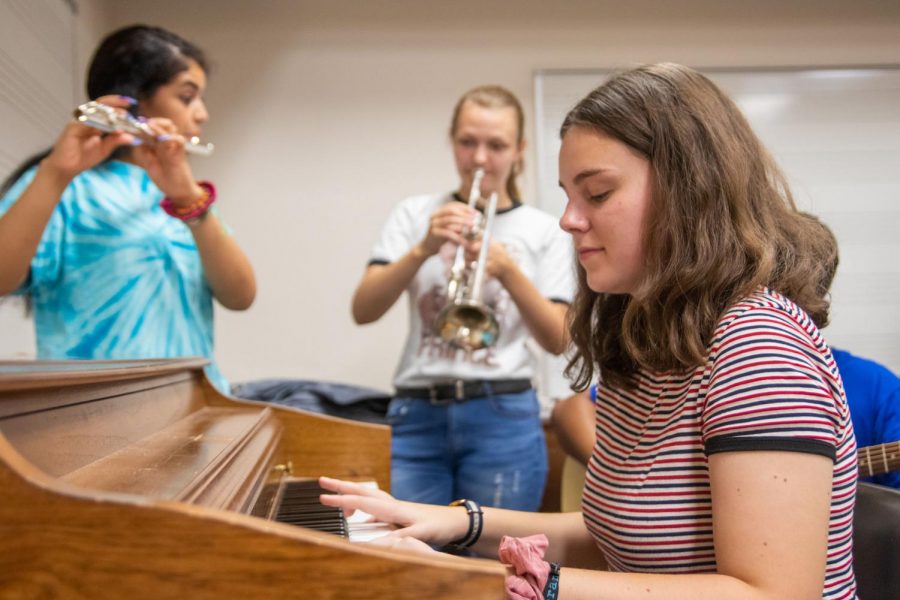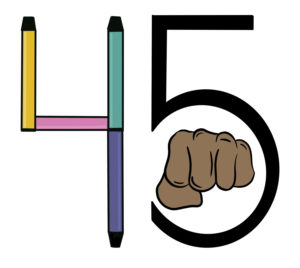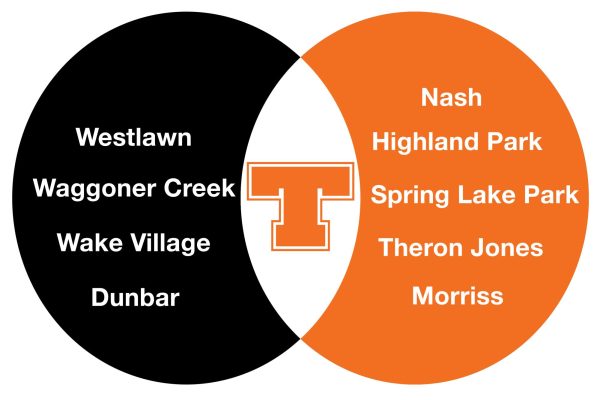Instrumental skills
Learning to play music is worth the time
Junior Ruth Heinemann plays the piano.
September 16, 2019
Sometimes your parents are right. When I started playing piano I was 9 years old, took a lesson once a week and got my own piano. To be completely honest, in the beginning I wasn’t passionate about it. I can’t count how many times I told my mother I wanted to quit because it didn’t make me happy and forced me to put pressure on myself.
Looking back at those times, I feel incredibly grateful that I didn’t give up because only a few years ago, I started to realize how important playing piano actually is to me. It led me to one of the most influential realizations in my life: music is magical.
Whether you dance, sing or just simply listen to music, it always has an effect on our emotions. It has the power to make us laugh and make us cry within the same song. It gives our subconscious mind the ability to deal with repressed memories and feelings. But actually making music and playing an instrument takes that magic to another level: it gives you the extraordinary skill to express feelings that cannot be described with words.
Making music has the power to change somebody’s life. It definitely changed mine. That is why I want people to know about the benefits of music for our brain, health and confidence. It doesn’t matter what instrument you choose, playing piano will have similarly positive effects on you like playing guitar or violin. In case you can’t decide what instrument you are most interested in, just try them all.
When you start playing an instrument, it will only take a few months or sometimes even weeks to notice the first effects. Most songs require your right and your left hand to execute different movements at the same time.
In order to accomplish all these movements, your brain develops the skill of independent coordination. Many areas of your brain are being activated and start to work autonomously and at a high speed. In addition to that, your hand-eye coordination will also improve, since you cannot watch your hand and your sheet music at the same time.
Another health benefit is the stress relief because while playing an instrument, you are focussing on a positive activity that can bring back your energy. I have a few favorite songs to play when I’m stressed. Those are usually rather easy songs because I won’t have to worry about making mistakes while playing. I prefer modern piano music by artists like Ludovico Einaudi that create a feeling of inner peace.
Judging from my own experience, playing an instrument doesn’t just help with stress, but also with confidence. People who suffer from stage fright are often able to boost their confidence by overcoming their fear when they can present something on stage that they are passionate about. I remember my first on stage performance: I was terrified. Not everything went as planned, it surely wasn’t perfect. But it made me realize that it doesn’t always matter how good something you did is, but rather the fact that you actually did it.
Making music is also a great opportunity to make new friends. It is pretty easy to meet these people because you already have the same interests. There are a lot of opportunities: becoming part of a marching band, applying at a symphony orchestra, or simply hanging out with people that want to make music in a group.
All of these aspects are good reasons to start playing, but the greatest accomplishment someone could possibly achieve is figuring out your own style of music. That doesn’t necessarily mean that you have to compose your own songs, but also changing up other artists’ songs to make them match your style. And I am convinced that there is a style for everyone. There are so many genres and so many artists.
So if you want to do something for your health, your confidence and your brain, start playing an instrument. You will be able to find a new passion that can be a part of you for the rest of your life.





















